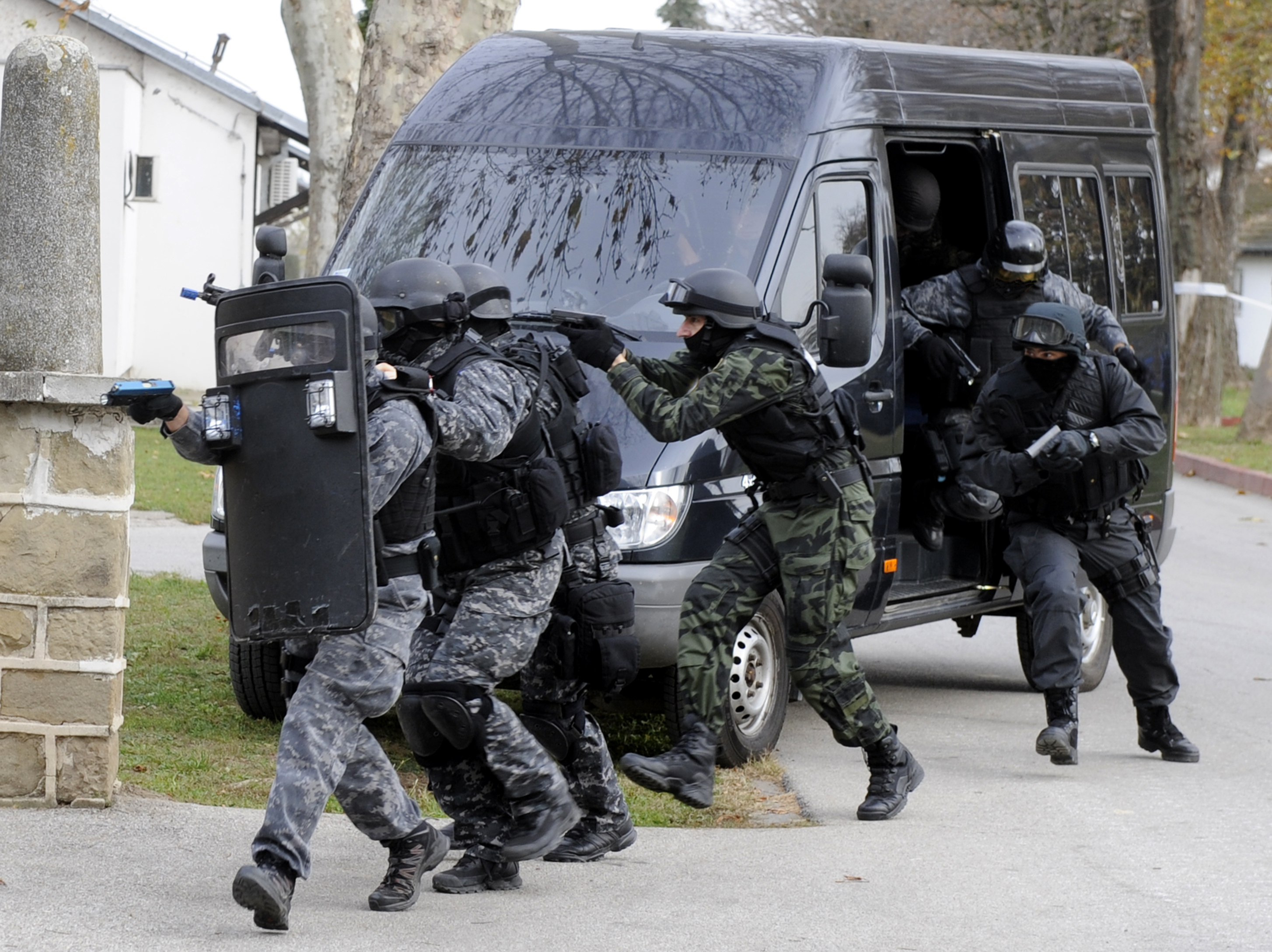A U.S. magistrate judge said in a document filed Monday that local DEU agents had a “widespread and persistent” policy of not knocking, announcing or waiting a reasonable time before executing search warrants, which is required by the Fourth Amendment.
The report was released in connection with a lawsuit filed by a man who was shot nine times and left paralyzed during a DEU raid on his home. The man partially settled his case for $2.75 million against one defendant, and the remaining claims may be going to trial.
What Is A No-Knock Warrant?
The Fourth Amendment protects Americans from unreasonable searches and seizures.
Historically, this means police must have a warrant to search a home, and they must announce themselves. But the US Supreme Court ruled in Hudson v. Michigan that evidence seized by police during no-knock raids can often be used in court, giving police a strong incentive to just ignore the Fourth Amendment.
In almost every state, judges now issue no-knock warrants when police say evidence could be destroyed if they wait to announce themselves at the door.
In the case of the DEU raid on Betton’s home, police did not have a no-knock warrant, they entered the home without announcing themselves without getting approval from the court first.
What’s Wrong with No-Knock Warrants?
Most people will defend their homes and their families when thugs charge in without permission. So, when police rush into a home unannounced, civilians and officers get hurt and killed.
Between 2010 and 2016, more than 30 civilians and 13 law enforcement officers were killed during the execution of no-knock raids. Of the civilians killed, half were members of a racial minority – not at all surprising considering that 42 percent of SWAT raids target African-Americans, and 12 percent target Latinos, according to the American Civil Liberties Union. In addition to the horrible costs in human life, these tactics cost taxpayers money – lawsuits filed in response to no-knock warrants have been settled for millions of dollars since 2011.
What Happens During No-Knock Raids?
In Betton’s case, DEU agents lied, claiming in their report that they knocked and announced themselves before breaking down the door. However, video footage shows this isn’t true – the officers said nothing as they exited their vehicle, approached the porch, and then used a ram on the door.
One officer said he “distinctly remembered” Betton firing his gun, but, again, this wasn’t true. A SLED ballistics expert examined Betton’s gun and determined that it had not been fired.
Here are some other examples of injuries and death – and lies by police – related to no-knock raids:
- A SWAT team severely burned a 12-year-old girl when they raided a home in Montana. Officers burst into the home without knocking or announcing themselves and dropped a flash grenade beside the girl’s bed. The girl’s parents pointed out that if police had knocked and spoken to them before knocking down the door and throwing an explosive device into their daughter’s bedroom, they would have realized the meth lab they expected to find simply didn’t exist, and their daughter would not have suffered first- and second-degree burns over half her body.
- In Arizona, a SWAT team murdered a former Marine who served two tours in Iraq in front of his family and then lied about it. When his front door was smashed down early one morning by thugs who did not announce themselves, he grabbed his rifle and tried to hide his wife and 4-year-old son in a closet. Officers shot and killed him, and then claimed in their report that he had fired his gun. Turns out, he did not shoot – the safety was still on when he was killed. Police then refused to allow medical personnel into the home, and he bled to death over the next hour. Officers found no evidence of any illegal activity in the home.
Criminal Defense Lawyers in Myrtle Beach, Conway, Columbia, and Charleston, SC
Any time police come to your home with a search warrant, it is frightening for the target and for their family. When police break down the front door without announcing themselves, anyone would feel the need to protect themselves and their family – this is why no-knock warrants have special requirements and must be pre-approved by the court.
If you were a victim of an unauthorized no-knock raid, we may be able to help you to get your charges dismissed depending on the facts of your case. In some cases, you may also have a civil rights lawsuit against the police.
Call the criminal defense attorneys at Coastal Law now at (843) 488-5000 or send us a note to discuss your case with an experienced criminal defense and civil rights lawyer.



